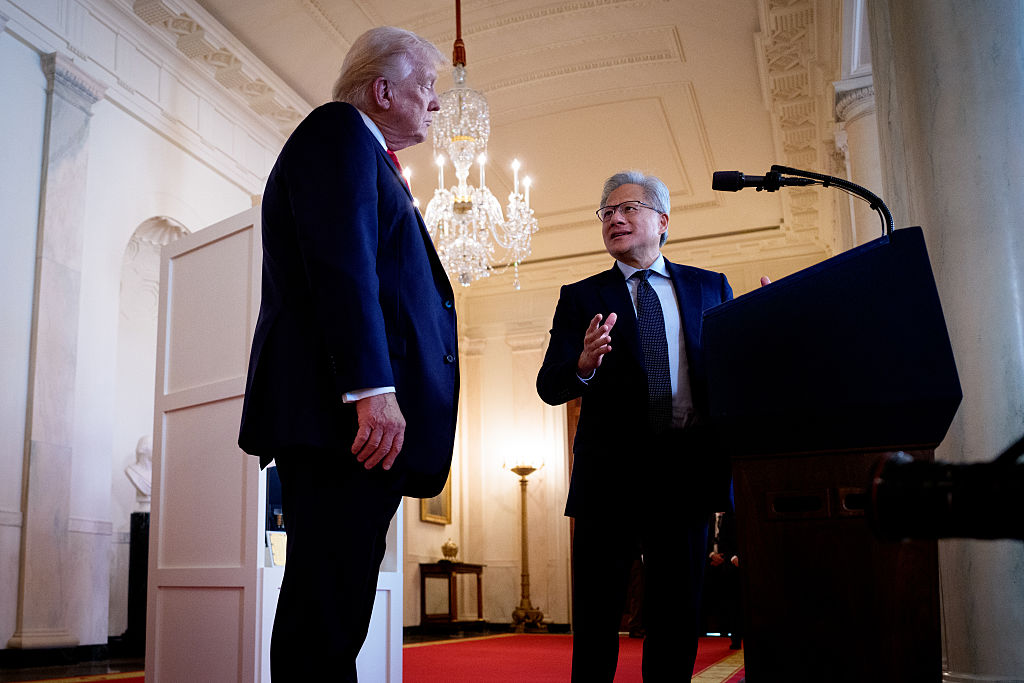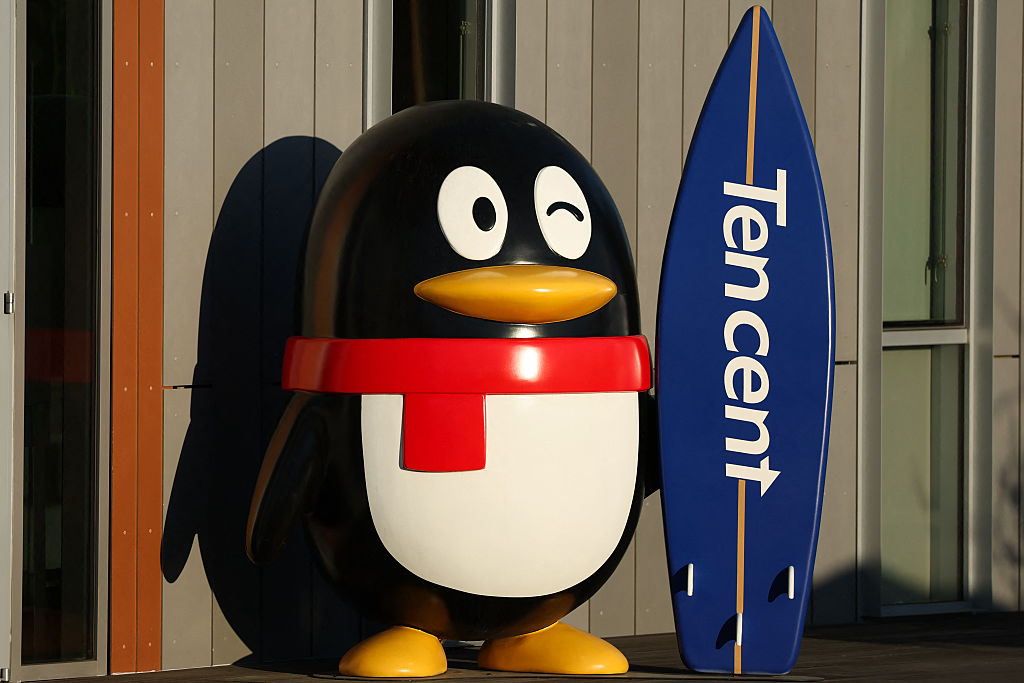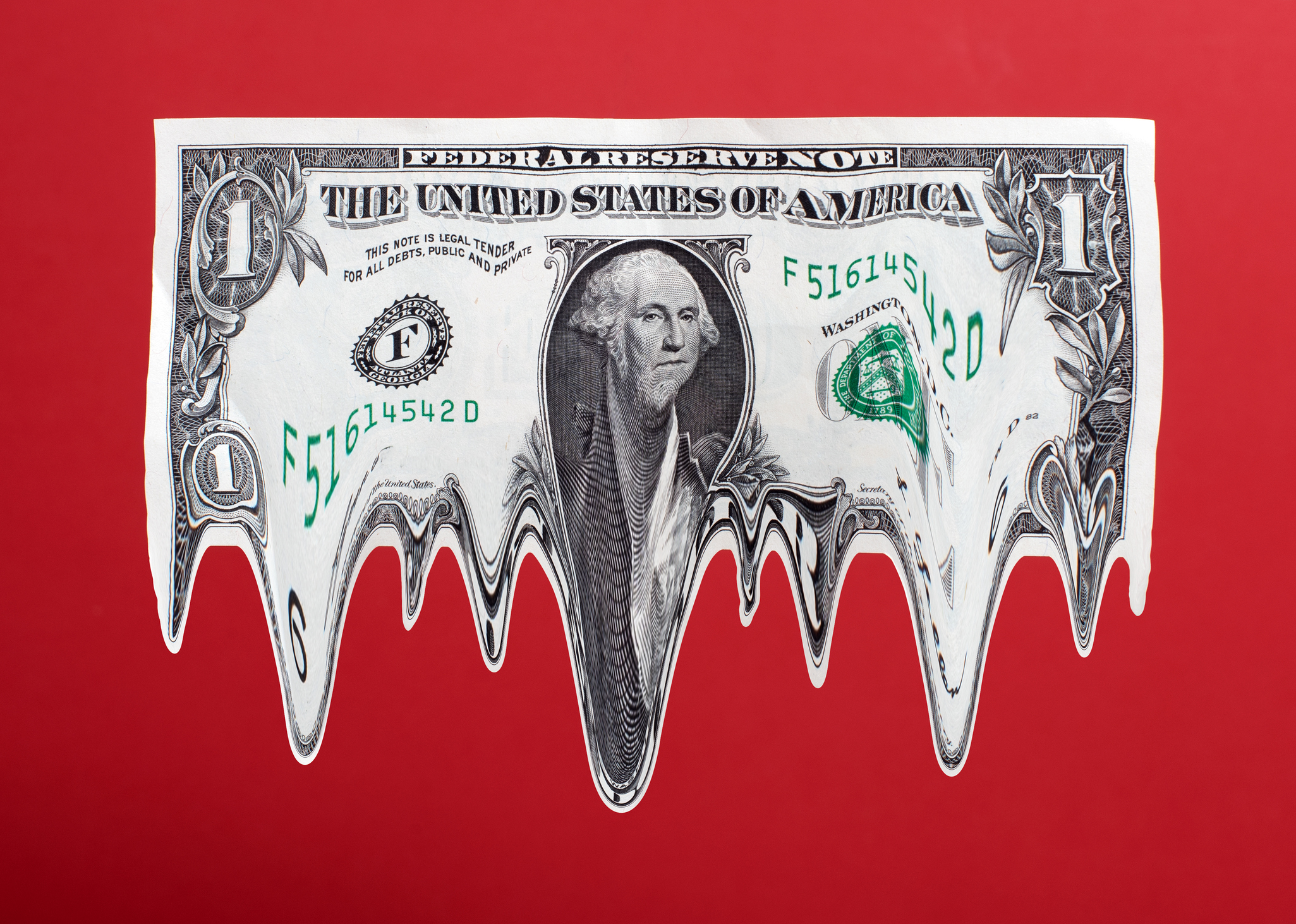Nvidia’s shares rise on Trump’s China chip concession
The lucrative Chinese market may be back in play for Nvidia as Donald Trump signals H200 chip exports could be permitted


Get the latest financial news, insights and expert analysis from our award-winning MoneyWeek team, to help you understand what really matters when it comes to your finances.
You are now subscribed
Your newsletter sign-up was successful
Want to add more newsletters?

Twice daily
MoneyWeek
Get the latest financial news, insights and expert analysis from our award-winning MoneyWeek team, to help you understand what really matters when it comes to your finances.

Four times a week
Look After My Bills
Sign up to our free money-saving newsletter, filled with the latest news and expert advice to help you find the best tips and deals for managing your bills. Start saving today!
Nvidia’s share price rose following hints from US president Donald Trump that he could permit the company to resume sales of certain chips to Chinese companies.
Trump posted on his social media platform Truth Social that he had told China’s President Xi Jinping that Nvidia would be allowed to ship its H200 artificial intelligence (AI) chips to China despite US restrictions on critical tech exports to its geopolitical rival.
Trump restricted the sale even of chips like the H20, which had been specifically designed to circumvent these controls, earlier this year, prompting Nvidia’s CEO Jensen Huang to bemoan that “the $50 billion China [chip] market is effectively closed to US industry” during the company’s Q1 earnings call in May.
MoneyWeek
Subscribe to MoneyWeek today and get your first six magazine issues absolutely FREE

Sign up to Money Morning
Don't miss the latest investment and personal finances news, market analysis, plus money-saving tips with our free twice-daily newsletter
Don't miss the latest investment and personal finances news, market analysis, plus money-saving tips with our free twice-daily newsletter
Like the H20 chip, the H200 is less powerful than the latest generation of GPUs that Nvidia sells to customers outside China.
Shares in Nvidia (NASDAQ:NVDA) gained 1.7% on 8 December. After rising in after-hours trading following Trump's announcement, Nvidia's shares then fell back 0.5% inside the opening hour of regular trading the following day.
“Donald Trump is back stirring the chip pot again, claiming Nvidia’s H200 chip is cleared for sale to China,” said Matt Britzman, senior equity analyst at Hargreaves Lansdown.
Trump also suggested that the US government will take a 25% sales tax on any chips sold to China, up from 15% previously.
Nvidia’s share price has gained 38% in 2025 as of close on 8 December, a run that helped make Nvidia the world’s first $4 trillion company.
How much could China shipments make for Nvidia?
China’s technology industry is potentially a big source of revenue for Nvidia, especially given Huang’s estimate of its $50 billion valuation.
Some analysts estimated that sales to China could add $15-25 billion to Nvidia’s revenue next year, though Britzman believes it is “far too early” to bake numbers like this into projections.
There are two variables, the first of which is demand for Nvidia’s H200 chips from Chinese companies. These are six times as powerful as the H20 that Nvidia was previously barred from exporting, according to the Institute for Progress, despite lagging behind the cutting edge Blackwell GPUs that will be reserved for US customers.
“Given the significant performance upgrade H200s represent vs. NVDA's H20… we believe China CSPs should have meaningful demand for the accelerators assuming unfettered access,” said Matt Bryson, managing director, equity research at Wedbush Securities.
But unfettered access – the second variable – is likely to be the challenge, despite Trump’s latest announcement.
“With the China government having previously blocked/dissuaded Chinese customers from buying US technology, we are somewhat cautious in believing China will approve of chip sales,” said Bryson.
The FT reported on 9 December that the Chinese government is likely to restrict the ability of Chinese firms to import H200 chips so as to encourage its own domestic chipmaking industry, citing two unnamed people with knowledge of the matter.
Can Nvidia keep increasing its earnings?
The bull thesis for Nvidia is that AI is going to transform every facet of life and business, and that all of this value created will feed into Nvidia’s bottom line.
“With AI infrastructure investments continuing to grow with the company expecting between $3 trillion to $4 trillion in total AI infrastructure spend by the end of the decade, the chip landscape remains Nvidia’s world with everybody else paying rent,” said Dan Ives, head of global technology research at Wedbush Securities.
But detractors will point out that this thesis falls apart if Nvidia’s profit growth ever underwhelms. “Any chink in [Nvidia’s] profits is likely to be taken very badly by the market,” says Ed Monk, associate director at Fidelity International.
Nvidia's year-over-year revenue growth slowed from over 250% two years ago to 53.5% in Q2 this year (note that Nvidia’s financial year is, effectively, one year ahead of the calendar year). There was clearly an impact in Q2 from the lost China chip sales – and despite this, Nvidia’s latest earnings showed a strong rebound to 62% growth – but Nvidia’s growth curve has clearly flattened over the last two years.
This flattening of revenue growth is inevitable as companies grow, but it is part of the reason why markets pay close attention to the numbers that Nvidia puts up relative to expectations.
In this context, revenue drivers like the China market take on huge importance for anyone considering buying Nvidia’s shares. If the Chinese market is closed off to Nvidia over the long term, it could dent the kind of revenue and profit growth that underpins the investment thesis for Nvidia.
Are Nvidia’s shares good value?
Nvidia’s shares currently trade at 45 times trailing earnings, and 30 times its expected earnings over the next 12 months, according to data from Yahoo Finance (as of US market close on 8 December).
These are some of the lowest multiples that Nvidia’s stock has traded at in years, and reflects investor jitters over the long-term sustainability of AI spend and the danger that the AI bubble could burst.
Bulls will argue that this is a more than reasonable price to pay for such a successful company, but as the perceived leader of the AI boom, Nvidia’s shares often bear the brunt when investor confidence wanes.
It also faces increasing levels of competition to what has for years looked like an effective monopoly on top-end AI chips. Rival AMD will also be allowed to sell its chips to China based on Trump’s latest policy announcement, and Google has recently launched its own AI chip, the tensor processing unit, which has powered superior performance in its latest Gemini model.
For investors looking for other means of exposure, there are various ways to find value in AI without having to pay the steep valuations that Nvidia commands.
Get the latest financial news, insights and expert analysis from our award-winning MoneyWeek team, to help you understand what really matters when it comes to your finances.

Dan is a financial journalist who, prior to joining MoneyWeek, spent five years writing for OPTO, an investment magazine focused on growth and technology stocks, ETFs and thematic investing.
Before becoming a writer, Dan spent six years working in talent acquisition in the tech sector, including for credit scoring start-up ClearScore where he first developed an interest in personal finance.
Dan studied Social Anthropology and Management at Sidney Sussex College and the Judge Business School, Cambridge University. Outside finance, he also enjoys travel writing, and has edited two published travel books.
-
 Should you buy an active ETF?
Should you buy an active ETF?ETFs are often mischaracterised as passive products, but they can be a convenient way to add active management to your portfolio
-
 Power up your pension before 5 April – easy ways to save before the tax year end
Power up your pension before 5 April – easy ways to save before the tax year endWith the end of the tax year looming, pension savers currently have a window to review and maximise what’s going into their retirement funds – we look at how
-
 Three key winners from the AI boom and beyond
Three key winners from the AI boom and beyondJames Harries of the Trojan Global Income Fund picks three promising stocks that transcend the hype of the AI boom
-
 'AI is the real deal – it will change our world in more ways than we can imagine'
'AI is the real deal – it will change our world in more ways than we can imagine'Interview Rob Arnott of Research Affiliates talks to Andrew Van Sickle about the AI bubble, the impact of tariffs on inflation and the outlook for gold and China
-
 Three promising emerging-market stocks to diversify your portfolio
Three promising emerging-market stocks to diversify your portfolioOpinion Omar Negyal, portfolio manager, JPMorgan Global Emerging Markets Income Trust, highlights three emerging-market stocks where he’d put his money
-
 New year, same market forecasts
New year, same market forecastsForecasts from banks and brokers are as bullish as ever this year, but there is less conviction about the US, says Cris Sholto Heaton
-
 How to profit from the UK leisure sector in 2026
How to profit from the UK leisure sector in 2026The UK leisure sector had a straitened few years but now have cash in the bank and are ready to splurge. The sector is best placed to profit
-
 Metals and AI power emerging markets
Metals and AI power emerging marketsThis year’s big emerging market winners have tended to offer exposure to one of 2025’s two winning trends – AI-focused tech and the global metals rally
-
 Quality emerging market companies with consistent returns
Quality emerging market companies with consistent returnsOpinion Mark Hammonds, portfolio manager at Guinness Global Investors, selects three emerging market stocks where he'd put his money
-
 Coreweave is on borrowed time
Coreweave is on borrowed timeAI infrastructure firm Coreweave is heading for trouble and is absurdly pricey, says Matthew Partridge